In contrast to recent student numbers intake across the country FT has published an article stating that, undergraduate numbers will see a rise in England in the next decade. [APRIL 7 2024. Looming rise in student numbers sparks calls for skills reform in England. Peter Foster and Anna Gross. © The Financial Times Limited 2013. All Rights Reserved].

Total numbers have a direct relation to several factors including but not limited to overseas students, and both financial and planning challenges faced by international students. Various geographical regions for example South and Southeast Asia are conventionally more leaning towards traditional degrees for example engineering and medicine. Particular interest in these degrees is stemmed by primary and secondary education systems, national skill gaps and more widely societal impacts. Despite, a brief decline in the numbers of international students a pattern in terms of various disciplines varies according to available data. In order to attract and sustain international student numbers core engineering and medical/ medicine degrees will remain significant centripetal force.
FT also reported that, this year universities will make a loss on each domestic student unless there is a change in fees policy [APRIL 7 2024. Looming rise in student numbers sparks calls for skills reform in England. Peter Foster and Anna Gross. © The Financial Times Limited 2013. All Rights Reserved]. In addition, a more diverse repositioning in terms of educational provisions is needed, such as strategic priorities for engineering & technology degrees, innovation in delivery models and methods of gradually but completely decoupling from textbooks taught system to a more flexible intuitive, research informed and practice-based education in partnership with industry which is fit for solving real world impact bearing problems. In turn safeguarding graduates’ future, placing their learning experience at the heart of education-research interface to guarantee higher levels of employability and job satisfaction.
HEIs are also facing a challenge in terms of financial sustainability as reported, the sector is struggling to recruit the higher-paying foreign students it relies on to subsidise lossmaking domestic places [FT 07 April 24]. A two-pronged approach would be needed to address these challenges. Firstly, repositioning in terms of facilities and resources to introduce, apply and integrate more state-of-the-art modelling and simulation techniques for practice, practical and experimental elements of teaching in engineering and technology degrees and initiating a phased transition from dependency on conventional hardware tools e.g. expensive machines to realise releasing economies of scale. Secondly, more robust, simpler and well understood parallels and transitioning pathways between HEIs and primary to higher secondary education are needed.

FT added that, “At the same time, government spending on skills will be 23 per cent below 2009—10 levels, according to analysis by the Institute for Fiscal Studies think-tank.” [APRIL 7 2024. Looming rise in student numbers sparks calls for skills reform in England. Peter Foster and Anna Gross. © The Financial Times Limited 2013. All Rights Reserved]. Collaborating closely with industrial partners and stakeholders’ skills gaps can be strategically prioritised for medium to long term needs, and educational provisions would need reshaping to integrate with research portfolio, UNSDGs, socio-economic, environmental impacts and relevant REF Unit of Assessment (UoA).
FT reported that, “The apprenticeship levy introduced in 2017 has also failed to deliver the expected boost to training, according to London Economics.” [APRIL 7 2024. Looming rise in student numbers sparks calls for skills reform in England. Peter Foster and Anna Gross. © The Financial Times Limited 2013. All Rights Reserved]. This is an important pathway for filling the skill shortages and also bridging the gap between theory and practice. A steady rise in flexible learning engineering degree students’ numbers, have been observed. These students are industry professionals who join these degrees at L5/6 level for a BEng/MEng flexible learning program. In addition to academic benefits these professionals achieve academic benchmark qualifications for professional registrations with professional institutions. This is one of the best available models to address skill shortages with a flexible high-quality delivery and academic provisions underpinned by research.
A stronger and broader engineering sector in collaboration with industry partners and professional institutions to develop futuristic engineering degrees to contribute to economic growth and its sustainability with an upward trajectory to address real concerns that, “tackling (of) the UK’s entrenched skills shortages and low economic productivity.” [APRIL 7 2024. Looming rise in student numbers sparks calls for skills reform in England. Peter Foster and Anna Gross. © The Financial Times Limited 2013. All Rights Reserved] is important.
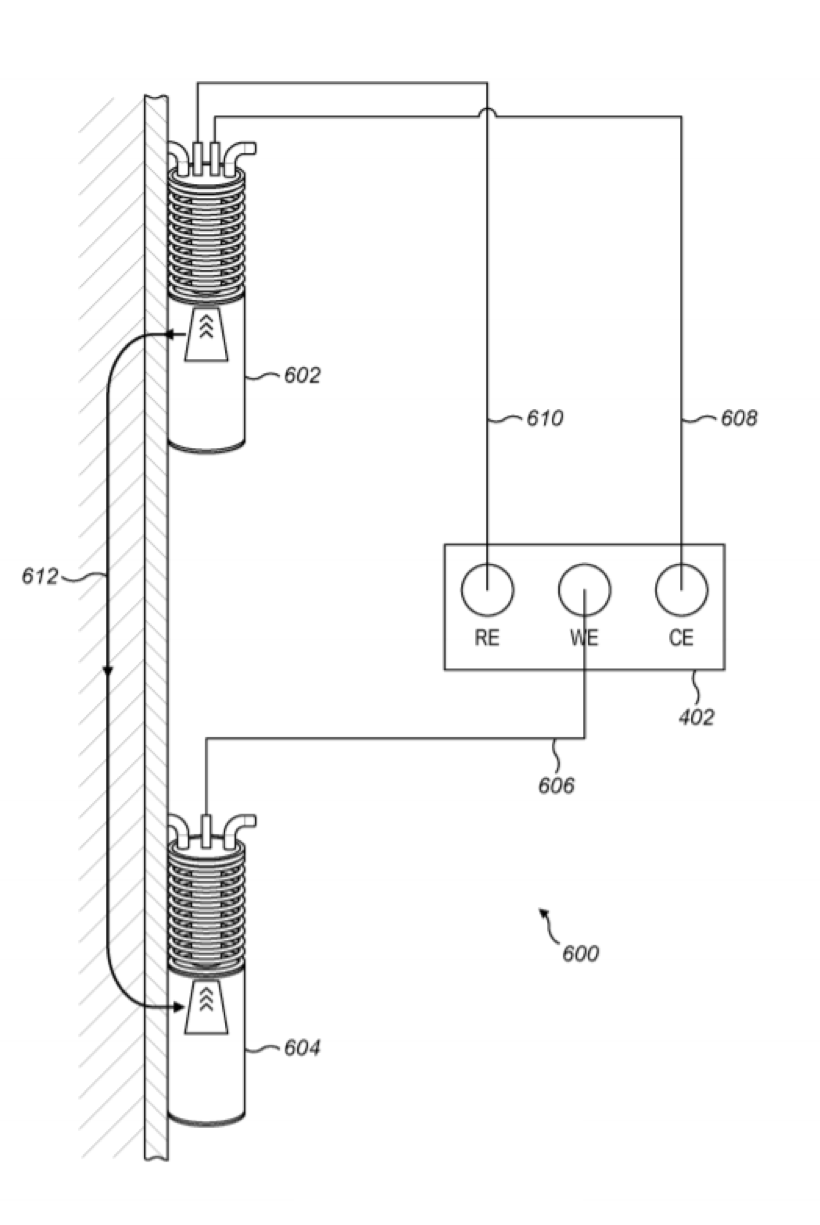
Telescopic Electrochemical Cell (TEC) for Non-Destructive Corrosion Testing of Coated Substrate. Patent number GB2018/053368
FT also mentioned in its latest article that, “Policymakers should also remove the cap on FE college places in order to “level up” education, (Lord Jo Johnson), added, providing more opportunities.” [APRIL 7 2024. Looming rise in student numbers sparks calls for skills reform in England. Peter Foster and Anna Gross. © The Financial Times Limited 2013. All Rights Reserved]. This can be looked into within the context of above-mentioned points in terms of establishing more defined parallels between HEIs and from primary to higher secondary education. A rethink to consider schools’ post code model for HEIs entry will help in levelling up.
Keywords: education, numbers, overseas students, engineering, skills, industry, professions.
Zulfiqar A Khan
Professor of Design, Engineering & Computing
NanoCorr, Energy & Modelling Research Group Lead
Email: zkhan@bournemouth.ac.uk
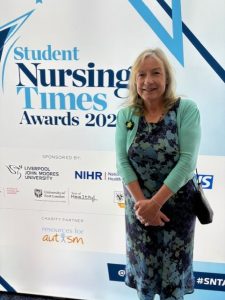 Congratulations to Sarah Moreton, PhD student at Bournemouth University, who was nominated and shortlisted for her research into the challenges faced by the nursing workforce in implementing the COVID-19 vaccination programme during the pandemic. A great achievement Sarah – very well done.
Congratulations to Sarah Moreton, PhD student at Bournemouth University, who was nominated and shortlisted for her research into the challenges faced by the nursing workforce in implementing the COVID-19 vaccination programme during the pandemic. A great achievement Sarah – very well done.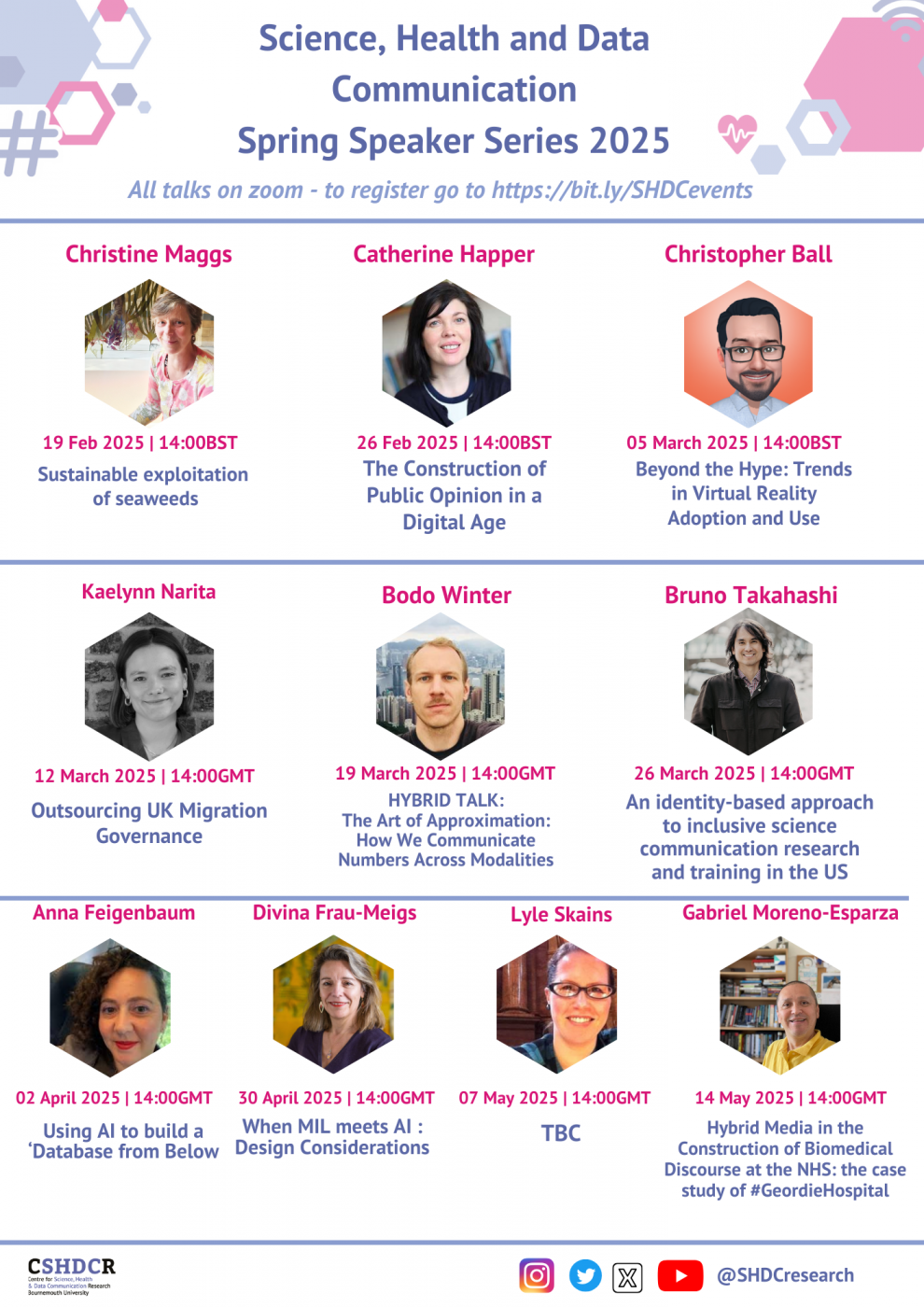
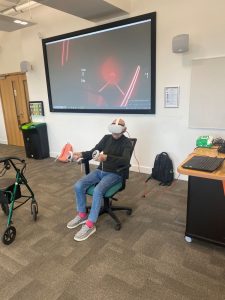

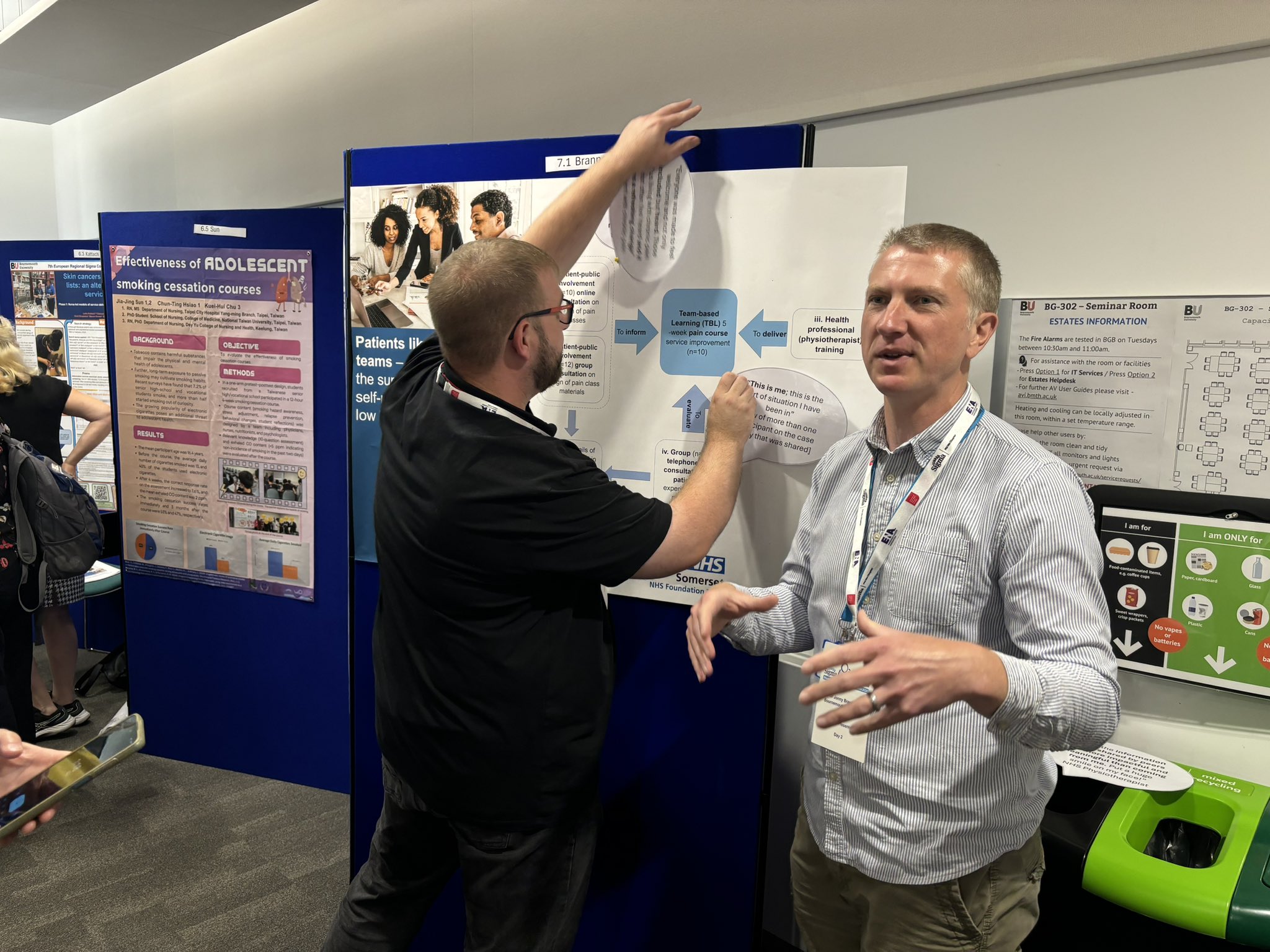
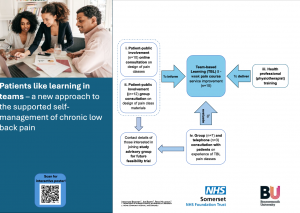
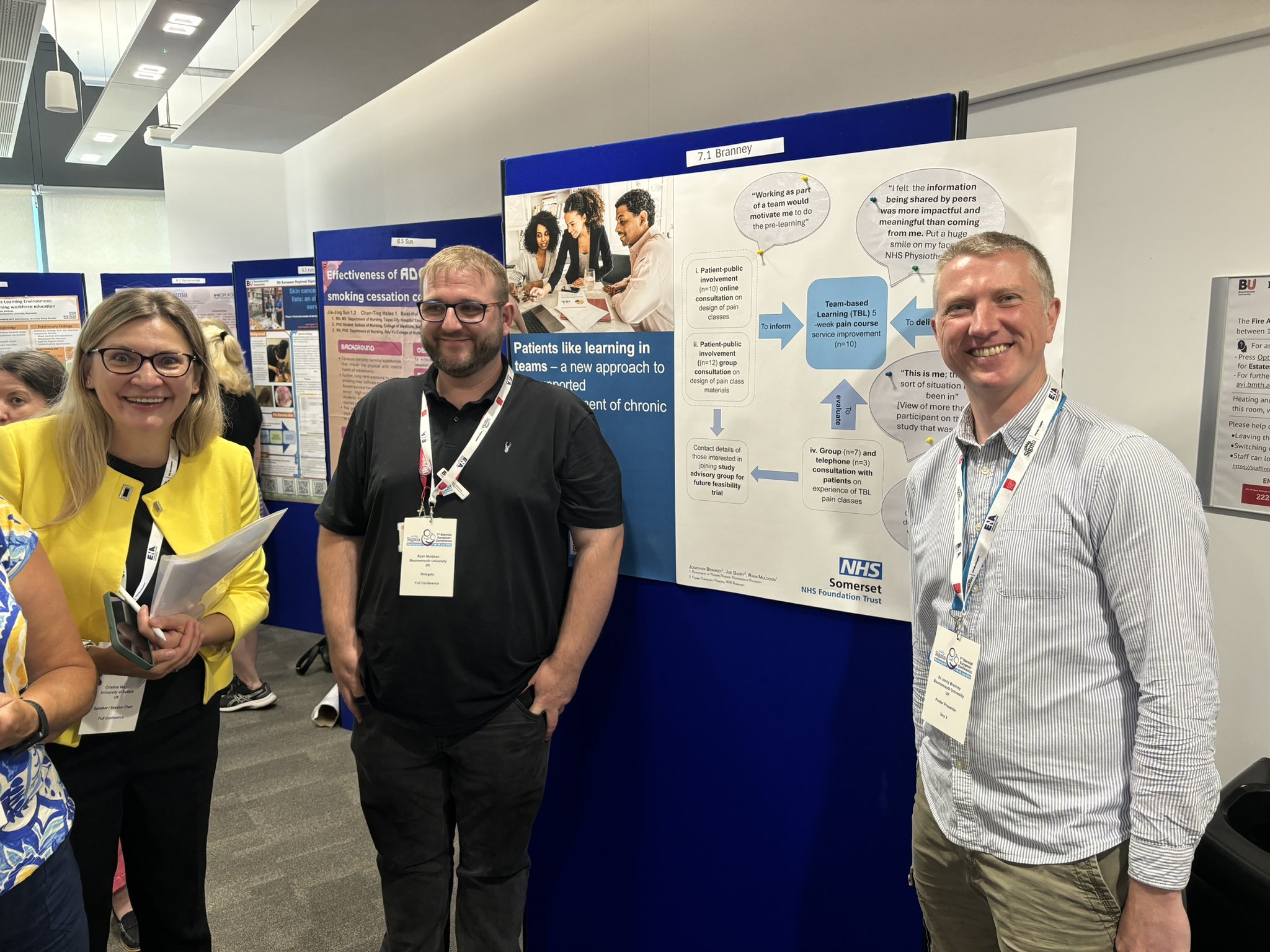
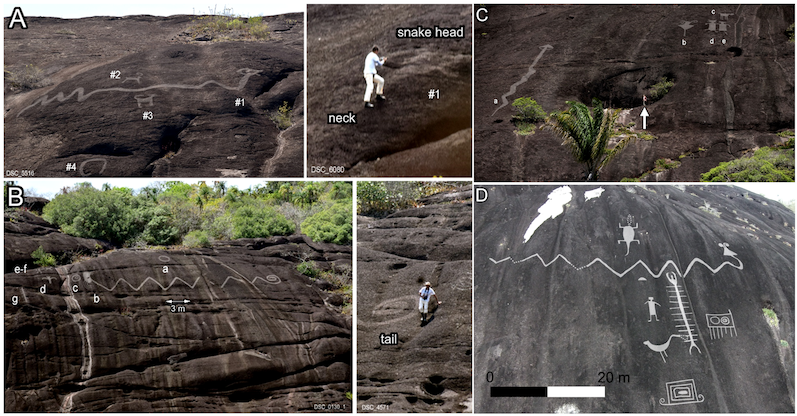


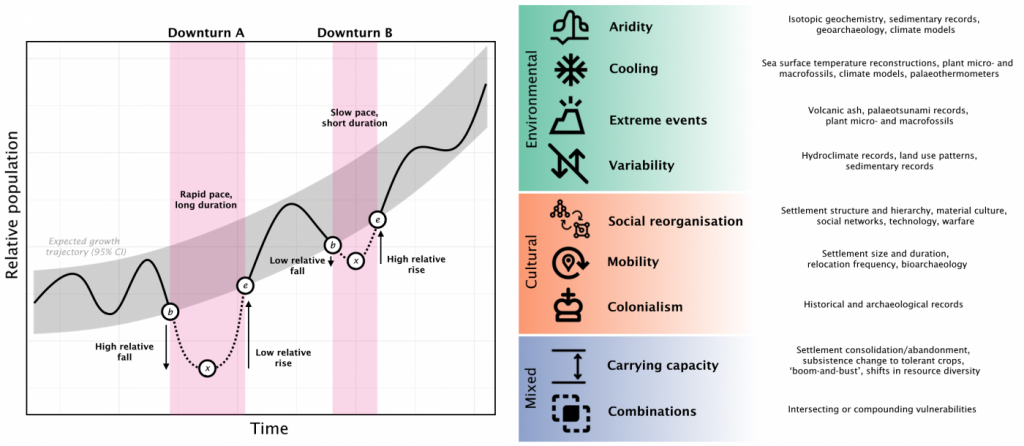


 series is a joint initiative of APU Ritsumeikan Asia Pacific University (Japan), t-FORUM The Tourism Intelligence Forum, NC State University and iCAPt International Center for Asia Pacific Tourism.
series is a joint initiative of APU Ritsumeikan Asia Pacific University (Japan), t-FORUM The Tourism Intelligence Forum, NC State University and iCAPt International Center for Asia Pacific Tourism.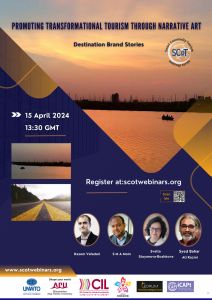



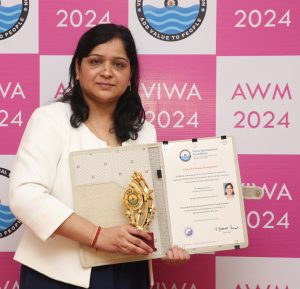
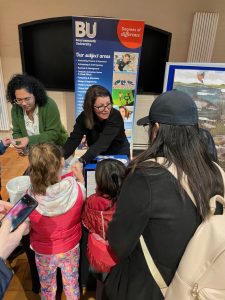 The annual Family Science Day in Dorchester on Sunday, 17th March 2024, was a vibrant celebration of the British National Science Week. This free event aims at making science accessible and engaging for families, providing a platform for learning and discovery in a fun and interactive way. With an attendance of 800 enthusiastic visitors, the event showcased 20 hands-on science stalls. BU was represented by staff, undergraduate and postgraduate students, and postdoctoral researchers. Contributors included Demetra Andreou (Fish Through Time), Amanda Korstjens (Voices in the Jungle), and Genoveva Esteban (Hidden World of Microbes), alongside Kirthana Pillay (postdoctoral researcher) and undergraduate students Dan Stevens and Jacob Tate from the Department of Life and Environmental Sciences. Xun He (Head of MINE Research Cluster, Psychology) and Fred Charles (Head of Department for Creative Technology) led a stall on Measuring Social Behaviour with VR & Brainwaves, with assistance from PhD student Damla Kuleli, research assistant Charlie Lloyd-Buckingham, and BU alumnus Rianna Green. BU Student Ambassador Lily Bater provided exceptional support throughout the day.
The annual Family Science Day in Dorchester on Sunday, 17th March 2024, was a vibrant celebration of the British National Science Week. This free event aims at making science accessible and engaging for families, providing a platform for learning and discovery in a fun and interactive way. With an attendance of 800 enthusiastic visitors, the event showcased 20 hands-on science stalls. BU was represented by staff, undergraduate and postgraduate students, and postdoctoral researchers. Contributors included Demetra Andreou (Fish Through Time), Amanda Korstjens (Voices in the Jungle), and Genoveva Esteban (Hidden World of Microbes), alongside Kirthana Pillay (postdoctoral researcher) and undergraduate students Dan Stevens and Jacob Tate from the Department of Life and Environmental Sciences. Xun He (Head of MINE Research Cluster, Psychology) and Fred Charles (Head of Department for Creative Technology) led a stall on Measuring Social Behaviour with VR & Brainwaves, with assistance from PhD student Damla Kuleli, research assistant Charlie Lloyd-Buckingham, and BU alumnus Rianna Green. BU Student Ambassador Lily Bater provided exceptional support throughout the day.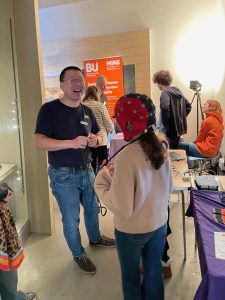
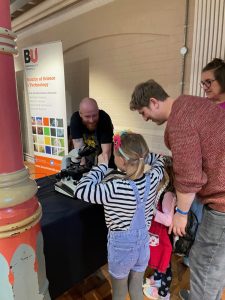
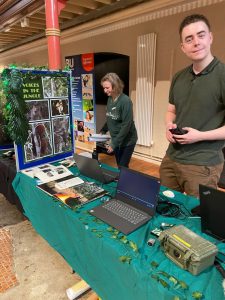
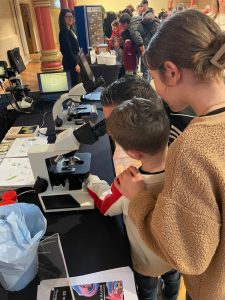












 BU attendance at third annual GCPHR meeting in June
BU attendance at third annual GCPHR meeting in June Interactive Tangible and Intangible Heritage Applications – BU student work featured in new book chapter
Interactive Tangible and Intangible Heritage Applications – BU student work featured in new book chapter Second NIHR MIHERC meeting in Bournemouth this week
Second NIHR MIHERC meeting in Bournemouth this week MSCA Postdoctoral Fellowships 2025 Call
MSCA Postdoctoral Fellowships 2025 Call ERC Advanced Grant 2025 Webinar
ERC Advanced Grant 2025 Webinar Horizon Europe Work Programme 2025 Published
Horizon Europe Work Programme 2025 Published Horizon Europe 2025 Work Programme pre-Published
Horizon Europe 2025 Work Programme pre-Published Update on UKRO services
Update on UKRO services European research project exploring use of ‘virtual twins’ to better manage metabolic associated fatty liver disease
European research project exploring use of ‘virtual twins’ to better manage metabolic associated fatty liver disease